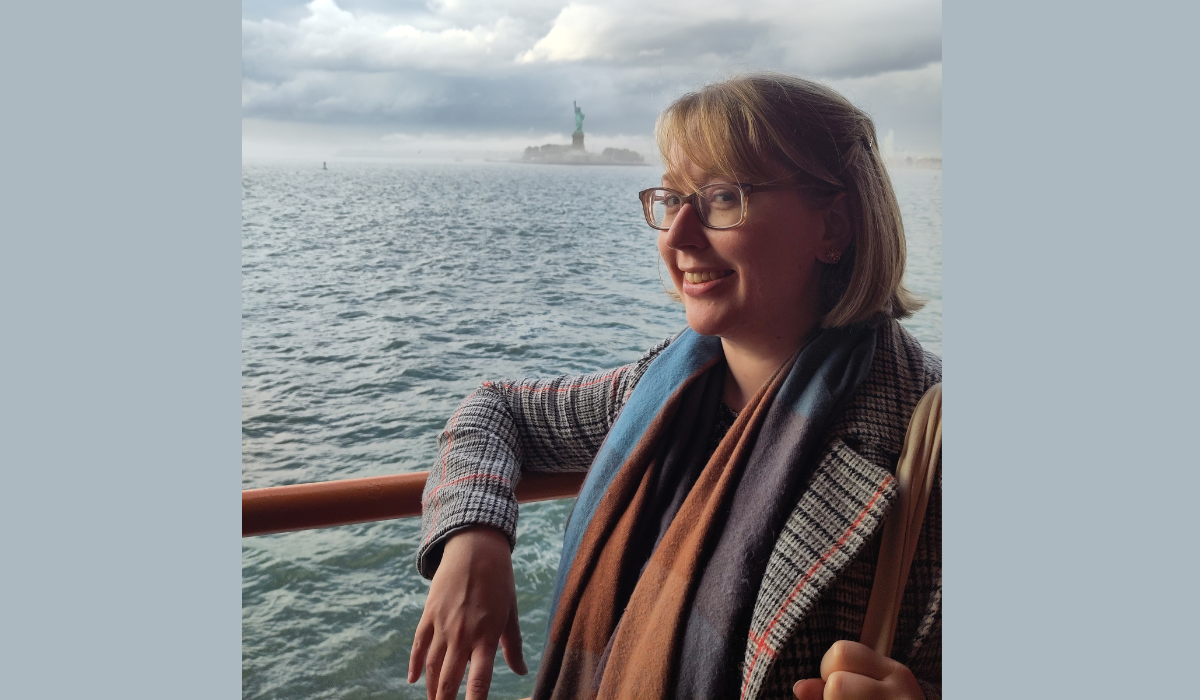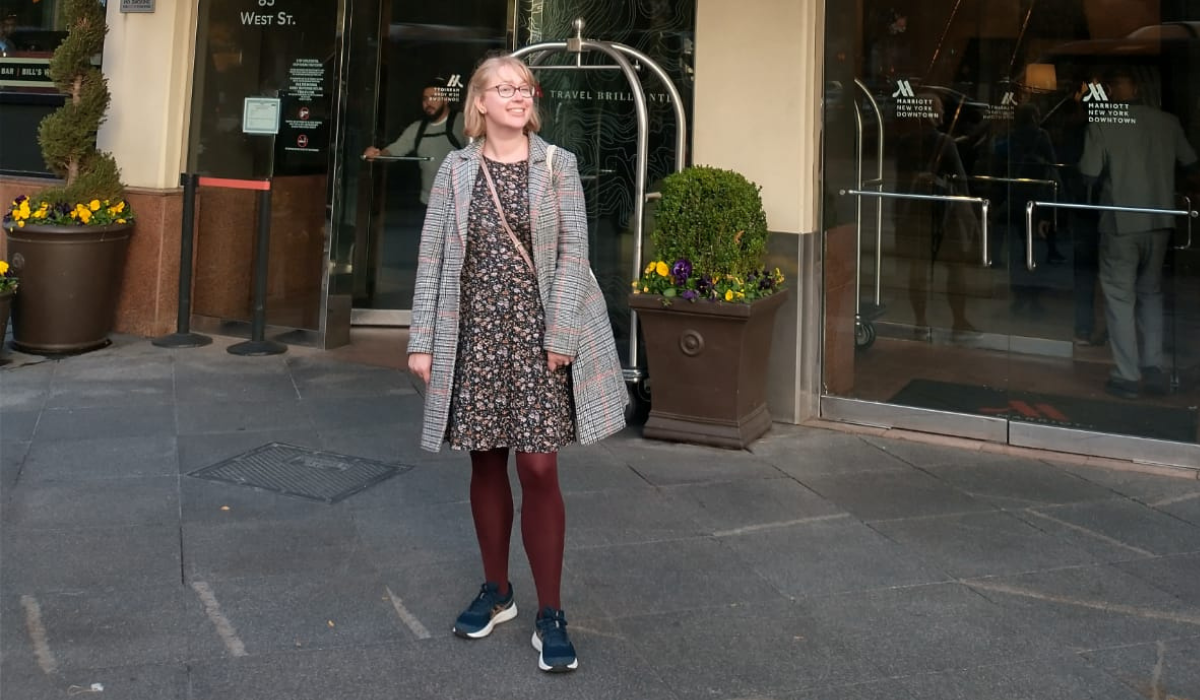Kathryn Bryan talks about the conference, her studies and inspirations, and why she loves being a Lucy student.
What are you studying at Lucy?
I am currently in my fifth and final year of my part-time PhD in French literature. My thesis is provisionally titled ‘Victime et bourreau’: The Question of Abortion in the Belle Époque Roman à thèse. I work on literary depictions of abortion from Belle Époque France, providing feminist close literary readings of five largely forgotten novels: Jeanne Caruchet’s L’Ensemencée (1904), Maurice Landay’s La Grappe (1904), Camille Pert’s L’Autel (1905), Jean Darricarrère’s Le Droit à l’avortement (1906) and Gaston Tournier’s La Fabrique d’anges (1907). I have always loved reading and fell in love with foreign languages at school, and so I chose to study MML (French and Russian) as an undergraduate at the University of Cambridge back in 2010. It was always my dream to return for a PhD, after completing my Masters in Comparative Literature at the University of Nottingham. I took some time away from academia in order to gain a PGCE in secondary languages at the University of Manchester and teach in a school for two years before the draw to return to academic studies pulled me back to Cambridge. One of the things I love about my course is the opportunity to continue my passion for teaching, not only through undergraduate supervision on nineteenth-century French scheduled papers but also as I am able to study part-time alongside my job as a languages' teacher in a local primary school.
What inspires you?
I consider myself extremely privileged to call some of the leading academics in the field of nineteenth-century French studies my colleagues at the University of Cambridge. Alongside my supervisor, Professor Nick White, I am inspired by my experience of working with Dr Claire White, Dr Edmund Birch, and Dr Rebecca Sugden and their support of myself and the other PhD candidates in nineteenth-century French. Above all, my recent experience of attending the conference alongside leading academics from other institutions across the world has inspired me to look into pursuing a career in academia beyond the PhD. I hope to find a position which allows me to continue to teach young people about French culture and language and further develop my research into abortion - a topic that I still find as fascinating and, in the current global climate, even more necessary to discuss than when I started my PhD in 2018.

Could you tell us about the conference?
I am extremely grateful for the financial support I have received from College. Firstly, the Evelyn Povey Studentship in French Studies, which helped me to make my PhD dream a reality and most recently, I received funding towards my attendance at the Nineteenth-Century French Studies Annual Colloquium in New York. This is the most prestigious conference in my field, and it was a significant moment in my postgraduate career even to have my paper proposal accepted. At my panel, I presented alongside three academics who have all published books on their research and received extremely positive feedback on my paper. The whole conference was an invaluable opportunity to hear exciting new research in the field presented by scholars whose work I have used in my own studies, as well as the chance to get career advice from these same early-career and more established academics.
Why did you choose Lucy?
Lucy was an obvious choice for my postgraduate studies at Cambridge. At the time of my application, the college still had a female-only cohort, and I loved the supportive community that it provided and what it stood for in the history of the University. It was important to me that I chose a college that valued women and feminist values for my time researching a topic that is so key to those same values. What I love about Lucy now is that, in spite of big changes to the cohort, the college still provides a welcoming space for under-represented communities within the University as a whole. My pathway from undergraduate to PhD was not the conventional one, but at Lucy, I have always felt that I fit into our diverse community. Although, as a part-time student who does not live in College accommodation, I do not spend as much time in College as I would like, I have a strong sense of my identity as a Lucian, and I am proud to be a part of our community.




